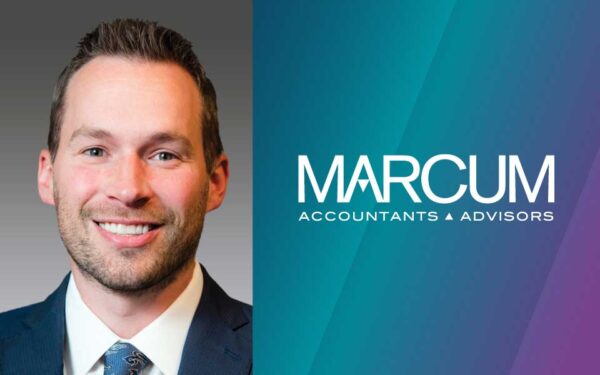20 Questions for Private Foundations from Raffa-Marcum’s Nonprofit & Social Sector Group
New York City, NY – Raffa – Marcum’s Nonprofit & Social Sector Group, a service of Marcum LLP, recommends 20 questions that can help guide private foundations in remaining compliant with IRS regulations and avoiding unforeseen penalties.
“Using private foundations is a popular way for corporations or individuals and their families to establish long-term charitable giving programs. Such entities are exempt organizations under IRC § 501(c)(3) and enjoy many benefits. However, these organizations are also subject to many rules and regulations that restrict their activities, some of which are highly complicated or have various exceptions that may apply. Accordingly, it is important that transactions are structured carefully to avoid any problems and the resulting penalties, which can be quite severe,” said Frank H. Smith, nonprofit tax leader for the Raffa – Marcum group.
- Do you maintain a current list of disqualified persons?
- Has the foundation engaged in any self-dealing transactions with a disqualified person?
- Has the foundation received tickets or other items that were used by disqualified persons?
- Does the foundation control another organization?
- Does the foundation have net capital losses or plan on selling investments at a loss?
- Does the foundation historically pay the 2% tax on net investment income rather than a reduced 1% tax?
- Does the foundation have highly appreciated stock it is planning on selling?
- Is the foundation meeting its annual minimum distribution requirements?
- Has the foundation considered setting aside funds in order to meet the minimum distribution requirements?
- Does the foundation have any charitable use assets or program-related investments that it can exclude from its minimum distribution calculation?
- Does the foundation invest in what may be considered risky investments (such as puts, calls, etc.)?
- Does the foundation own any stock that may be considered excess business holdings?
- Does the foundation provide grants to non-public charities or taxable entities?
- Does the foundation provide scholarships or other type of grants directly to individuals for travel, study, or similar purposes?
- Does the foundation provide grants or wish to provide funding to foreign charities?
- Does the foundation engage in political or lobbying activities or have any expenditure related to such activities?
- Does the foundation engage in any activities unrelated to its exempt purpose?
- Does the foundation use debt to finance the purchase of any income producing assets (including the use of margin accounts)?
- Does the foundation invest in partnerships?
- Has the foundation satisfied all of the disclosure requirements related to contributions received or its annual return and exemption application?
Disqualified Persons
Disqualified persons are individuals or organizations a private foundation is deemed to be related to and with which the private foundation is limited from engaging in transactions which may create self-dealing or excess business holding issues (discussed below). Disqualified persons include the following:
- Officers, directors or trustees of the foundation
- A substantial contributor to the foundation
- Companies or partnership substantially owned by disqualified persons
- Spouse and families of any of the above (family in this instance includes ancestors, children, grandchildren, great-grandchildren and their spouses, but not siblings)
Self-dealing
A disqualified person is restricted in the types of transactions that can be engage in with a private foundation. These transactions include:
- A sale, exchange, or leasing of property
- Lending of money or other extension of credit
- Furnishing of goods, services, or facilities
- Payment of compensation
- Transfer to or use of the income or assets of a private foundation
Generally, these are per se prohibitions. For example, a private foundation could not sell a pencil to a disqualified person for $100, even though such a transaction would be beneficial to the foundation. There are few exceptions to these restrictions, such as the payment of reasonable compensation for the performance of personal services, and the provision of facilities by a disqualified person to a related private foundation without charge.
Due to the complexity of the law in this area and the severity of the penalties, it is recommended that a qualified tax advisor review any transactions involving a disqualified person.
Received Tickets
Foundations often receive tickets to fundraising events in return for its contributions. The use of such tickets by disqualified persons or individuals related to disqualified persons could be considered a self-dealing transaction. For example, if a disqualified person gives the tickets to a spouse or employee of a related corporation, the IRS has ruled that an act of self-dealing has occurred, even if the disqualified person personally pays the fair market value of the ticket in question. An exception exists if the person who attends the event is a representative of the foundation and has the responsibility to evaluate or review the activities of the grantee organization.
Controlled Organizations
Acts with controlled organizations are generally treated as though the act was performed by the private foundation itself. An organization is treated as controlled by a private foundation if the foundation, one or more foundation managers, or disqualified persons of the foundation can, by aggregating their votes or authority, require the organization to engage in the self-dealing transaction.
Net Capital Losses
Capital losses from the sale of foundation investments can only be used to offset capital gains in the same tax year. The capital losses cannot be used to offset other investment income, nor can they be carried back or forward to other tax years. Therefore, when possible, foundation managers and investment advisors should manage the sale of such investments to avoid large losses in one year and large gains in another year.
Reduced 1% Tax
A foundation can qualify for a reduced tax rate of 1% if it makes qualifying distributions during a tax year that is at least equal to a certain amount that is based on the average percentage of assets distributed in the prior five tax years. Your tax advisor should be able to advise you as to the amount of distributions that are necessary for the current year in order to qualify for this reduced rate. With proper tax planning, a foundation can maximize the benefit of this reduced tax by timing its distributions and the sale of any highly appreciated investments.
Highly Appreciated Stock
In order to take advantage of various tax laws, private foundations often receive highly appreciated stock from its donors. Sale of such appreciated property would normally generate net investment income that is taxable to the foundation. However, if a foundation contributes appreciated property to a public charity, the foundation gets a qualified distribution for the full fair market value of the property, but does not have to pay taxes on the amount of the appreciation.
Minimum Distribution Requirements
Generally, a foundation is required to distribute an amount equal to approximately 5% of the fair market value of its assets every year. Qualifying distributions include actual disbursements paid to accomplish an exempt purpose, set-asides, purchase of charitable use assets, program related investments, and reasonable and necessary administrative expenses. Due to the fact the foundation has a one-year grace period for meeting the minimum distribution requirement, a qualified tax advisor should be able to advise you as to the amount of the distribution which is required in order to avoid excise taxes on undistributed income.
Set-asides
A foundation’s qualifying distributions are normally calculated solely on a cash receipts and disbursements method. However, certain amounts set aside for specific purposes may be treated as distributions before the amounts are actually paid. Generally, unless the foundation is in its initial startup phase and meets specific requirements, the foundation must first receive advanced approval for the set-aside.
Charitable Use Assets
Assets used directly in carrying out the exempt purposes of the foundation can be excluded from the foundation’s minimum investment return calculation, which will decrease the amount required to be distributed by the foundation. For example, the building in which the foundation operates or the computer equipment its staff uses to track donee information would qualify as charitable use assets.
Program-related Investments
Amounts paid to acquire or operate program-related investments are treated as qualifying distributions for satisfying the minimum distribution requirements. A program-related investment should possess the following characteristics:
- Primary purpose is to accomplish a charitable, educational, or similar purpose
- Production of income or appreciation of property is not a significant purpose of the investment
- Investment is not made in order to influence legislation or campaign on behalf of a candidate for public office
Risky Investments
While the IRS has noted that it will not consider any type of investment a “jeopardizing investment” per se, there are certain categories of investments that it will closely scrutinized, such as puts, calls, warrants, etc. An investment would be considered to be a jeopardizing investment if the foundation managers, in making the investment, fail to exercise ordinary business care in providing for the long and short-term financial needs of the foundation.
Excess Business Holdings
Generally, excess business holdings would exist if a private foundation and all disqualified persons combined own over 20% of the voting stock of an incorporated business enterprise. Under certain circumstances, this percentage may increase to 35%. In addition, there is a 2% de minimis rule in situations where the foundation itself owns 2% or less of both the voting stock and value of all outstanding shares of the business enterprise. There is also a 5-year grace period for business holdings that are obtained through gift or bequest.
Grants to Non-Public Charities or Taxable Entities
Normally, most private foundations meet their minimum distribution requirements by making grants to public charities. Making grants to other organizations may not be considered qualifying distributions and may also be considered taxable expenditures, subjecting the foundation to various excise taxes. However, if such a distribution is made to a non-public charity or to a taxable entity, the foundation can avoid the excise taxes by satisfying the requirements for expenditure responsibility. The expenditure responsibility requirements can be met by establishing adequate procedures, obtaining certain documentation, and accurately reporting the expenditure to the IRS. Before making these types of distributions, you should consult a tax advisor to minimize the risk of making a distribution that may be considered a taxable expenditure.
Grants Directly to Individuals
In general, grants awarded to individuals for travel, study, or similar purposes are taxable expenditures. However, such a grant will not be considered to be a taxable expenditure if it is awarded on an objective and nondiscriminatory basis, and is made with advanced approval by the IRS. In addition, the foundation can make other types of grants to individuals, including employer-related scholarships, as long as it meets certain requirements.
Foreign Charities
Private foundations can make distributions to foreign charities, but need to show that the foreign charity is the equivalent of a public charity, or the foundation will need to exercise expenditure responsibility as discussed above. Due to the difficulties of obtaining documentation from some foreign countries, meeting these requirements may not be easy. However, a qualified tax advisor with experience in this area should be able to assist in satisfying these requirements and the additional procedures should not prevent a foundation from making foreign grants in furtherance of their exempt purposes.
Political or Lobbying Activities
Charitable organizations in general are limited in the extent to which they can participate in attempts to influence legislation. Private foundations are subject to even stricter limitations. Private foundations cannot pay or incur any amount to carry on propaganda or otherwise attempt to influence legislation. However, they can support programs that involve public policy and social advocacy issues as long as the activities do not involve attempts to influence legislation (whether through direct lobbying or grass roots lobbying). Exceptions do exist for supporting nonpartisan studies of broad social and economic issues or amounts related to self-defense legislation.
Unrelated Business Income
Similar to public charities and most other exempt organizations, private foundations are subject to taxation on any unrelated business income. All activities of the foundation should be analyzed to determine and document the relationship to the exempt purposes of the foundation.
Debt to Finance the Purchase of Any Income Producing Asset
Private foundations must include income from debt-financed property in their calculation of unrelated business income. Generally, debt-financed property is any property that is held to produce income and has acquisition indebtedness at any time during the year. In addition, any property that is disposed of during the year may be subject to tax if there was acquisition indebtedness with regards to the property at any time during the 12 months prior to the disposal. Depending on the facts and circumstances, the use of margin accounts in a private foundation’s investment portfolio may cause the organization to be subject to taxation.
Partnerships
Activities engaged in by a partnership in which a private foundation is a partner (whether a general or limited partner) is considered to be engaged in directly by the foundation. A foundation needs to pay attention to the activities of such organizations, because the activities can inadvertently cause many problems for the foundation.
Disclosure Requirements
Private foundations are subject to many disclosure and reporting requirements. In addition to some special reporting requirements noted above, examples of some basic reporting requirements are as follows:
- Substantiation requirements – must acknowledge donations greater than $250
- Quid pro quo reporting requirements – must acknowledge donations greater than $75 when goods or services are given to the donor in return
- Annual reporting requirements – required to file federal Form 990-PF and possibly additional state filings
- Public disclosure rules – must make the annual report and exemption application available for public inspection
ABOUT RAFFA – MARCUM’S NONPROFIT & SOCIAL SECTOR GROUP
Raffa – Marcum’s Nonprofit & Social Sector Group provides expertise and service across a variety of essential, interrelated financial, technology and consulting competencies. The group is dedicated to serving as a catalyst for positive systemic change in the community, by serving as a go-to partner for compliance and operational excellence, freeing its clients to remain focused on their missions.
About Marcum LLP
Marcum LLP is a top-ranked national accounting and advisory firm dedicated to helping entrepreneurial, middle-market companies and high net worth individuals achieve their goals. Marcum’s industry-focused practices offer deep insight and specialized services to privately held and publicly registered companies, and nonprofit and social sector organizations. The Firm also provides a full complement of technology, wealth management, and executive search and staffing services. Headquartered in New York City, Marcum has offices in major business markets across the U.S. and select international locations. #AskMarcum.


























